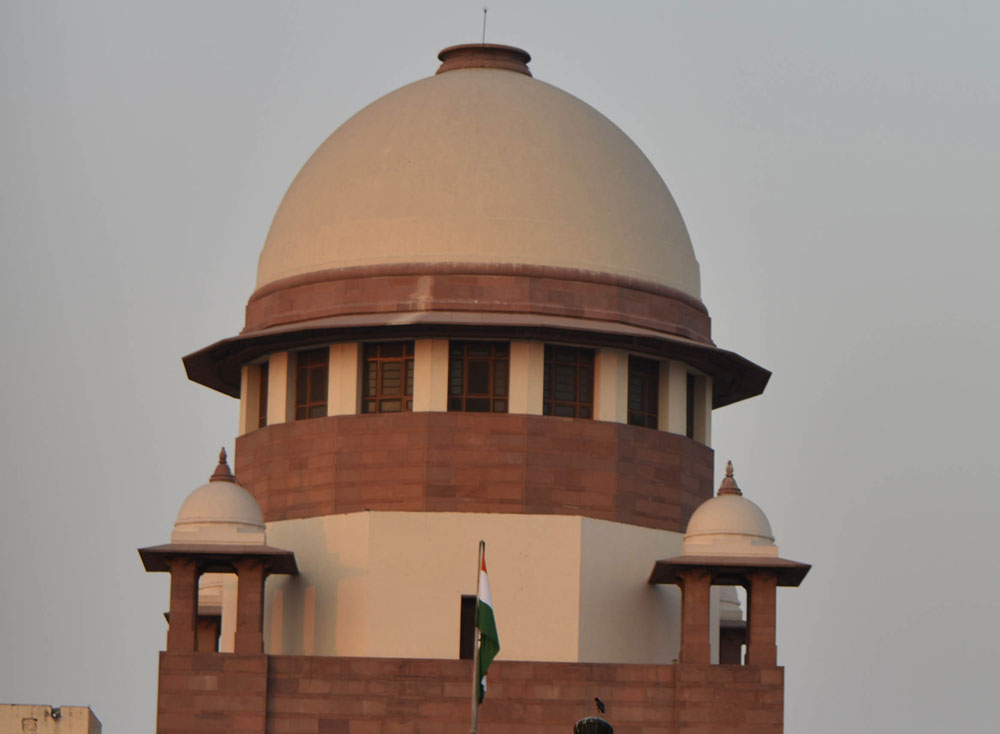The government on Wednesday reassured the Supreme Court it would continue to enforce its March 28 guidelines to ensure full wages for migrant workers, day labourers and contractual employees through the lockdown period, rebutting what it called unsubstantiated allegations of faulty implementation.
“These are self-employment-generating petitions,” solicitor-general Tushar Mehta, who appeared for the Union government, told a bench of Justices N.V. Ramana, Sanjay Kishan Kaul and B.R. Gavai.
Mehta’s comment came in response to submissions by senior advocate Colin Gonsalves who had said the guidelines the ministry of agriculture and farmers’ welfare had issued on March 28, asking all states and Union Territories to ensure full wages for these workers, were not being fully implemented.
“This court should not entertain such petitions,” Mehta said.
The court was dealing with a public interest petition that social activist Swami Agnivesh had filed, alleging that thousands of migrants and daily wage earners had not been paid their wages, leaving many of them on the verge of starvation.
Gonsalves, who appeared for Agnivesh at Wednesday’s hearing, said although the Centre had filed several affidavits in the court claiming implementation of various measures, the ground reality was somewhat different.
The senior counsel said the guidelines and advisories on matters like payment of wages and embargo on collection of rents were not being implemented at the ground level by the authorities.
Thousands of workers across the country, he submitted, had not been paid minimum wages.
Gonsalves said the Disaster Management Act obliged the Centre and state governments to prepare a detailed plan and machinery for mitigating the effects of disasters, including steps required to help victims directly or indirectly affected by disasters.
Therefore, he said, it was the duty of state governments as well as the Centre to jointly and severally ensure payment of wages/minimum wages to all migrants who were indirect victims of the Covid-19 outbreak.
Gonsalves alleged that the government’s inaction on protecting these migrant workers, who were being forced to move back to their villages in this “unprecedented humanitarian crisis”, was violative of their right to life guaranteed under Article 21 of the Constitution.
At several places, it was alleged, police were not showing any initiative in implementing the directives.
Mehta rebutted the allegations and said the Centre has been monitoring the situation with the states and the Union Territories to enforce the measures.
“I have serious problems with this type of petitions…,” the solicitor-general said, accusing the petitioner of making sweeping and unsubstantiated allegations.
He said the government had already filed a number of affidavits clearly explaining the measures being taken to combat the crisis.
The bench, after hearing the arguments, recorded an undertaking from the solicitor-general that the government would continue to monitor the implementation of various ameliorative guidelines for thousands of workers across the country. It then disposed of the petition.
“Heard learned counsel appearing on behalf of the petitioner as also the learned Solicitor General appearing on behalf of the Union of India. The grievance of the petitioner in this writ petition is that the guidelines issued by the Ministry of Agriculture and Farmers Welfare dated 28.03.2020 are not being fully implemented by the concerned police authorities,” the bench said.
“On the contrary, learned Solicitor General appearing on behalf of the Union of India states that there is full monitoring and implementation of the guidelines issued by the Ministry of Agriculture and Farmers Welfare dated 28.03.2020 and it will be ensured that the concerned police authorities would also naturally follow these guidelines. Recording the statement made by the learned Solicitor General, we dispose of the instant writ petition.”











